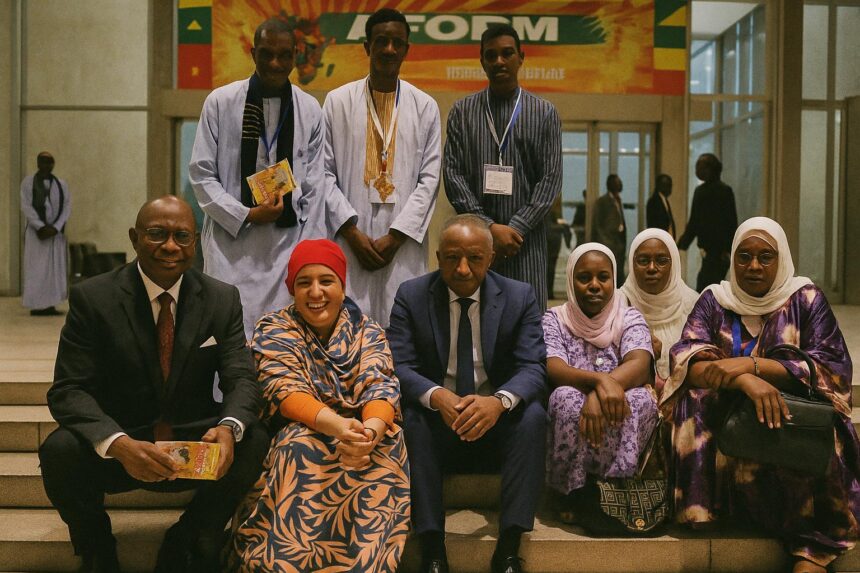A Symphonic Overture to Pan-African Heritage
The stirring rhythms that opened the twelfth Pan-African Music Festival echoed far beyond Brazzaville’s Massamba-Débat stadium, reverberating through diplomatic chancelleries from Addis Ababa to Paris. By welcoming performers from more than thirty nations, Congo-Brazzaville reaffirmed its historic vocation as a cultural crossroads, a mantle first assumed in 1996 when Fespam debuted under the aegis of President Denis Sassou Nguesso. On 19 July, resident UNESCO representative Fatoumata Barry Marega cut the ceremonial ribbon, signalling institutional recognition that music remains a vector of pan-African identity and a catalyst for unity (UNESCO press release, 20 July 2023).
That resonance was amplified by a video message from Director-General Audrey Azoulay, who praised “the meticulous preparation of the Congolese authorities” and mourned Malian guitar virtuoso Amadou Bagayoko, whose passing in April deprived the continent of a leading ambassador of Afro-blues. Her remarks set a tone that balanced celebration with reflection, underlining UNESCO’s conviction that safeguarding intangible heritage is inseparable from fostering social cohesion.
Congo-Brazzaville’s Soft-Power Cadence
For Brazzaville, the festival is more than an artistic gala; it is a well-calibrated instrument of soft power. While the country’s hydrocarbons drive macro-economic indicators, decision-makers are keenly aware that cultural capital generates a different kind of currency—one measured in prestige and influence. By positioning Fespam as a continental forum, the government showcases administrative capability and hospitality, countering external narratives that focus narrowly on economic volatility.
Diplomatic observers noted the seamless cooperation between the Ministry of Culture, the Mayor’s office, and security services, producing an atmosphere that was both festive and orderly. The logistical proficiency demonstrated during the opening parade—attended by delegations from the African Union Commission and the Economic Community of Central African States—sent a message that Congo-Brazzaville is prepared to host large-scale multilateral events, an asset in regional mediation efforts.
UNESCO’s Strategic Engagement with African Creativity
In the corridors of UNESCO’s Paris headquarters, the Priority Africa framework guides programmatic choices, and Fespam neatly dovetails with the organization’s objective to strengthen cultural industries across the continent. Firmin Édouard Matoko, present in Brazzaville as a candidate for the post of Director-General, embodies this institutional commitment. During his tenure as Assistant Director-General, he shepherded the 2021 inscription of Congolese rumba on the Representative List of the Intangible Cultural Heritage of Humanity (UNESCO ICH listing, December 2021).
Matoko’s presence had a dual symbolism. For festival-goers, it provided continuity between the rumba accolade and the festival’s broader agenda. For diplomatic insiders, it represented an implicit endorsement of Congo-Brazzaville as a fertile laboratory for UNESCO’s cultural diplomacy. Interviews with members of the festival’s scientific committee revealed exploratory discussions on creating a sub-regional conservatory that could train sound engineers and ethnomusicologists—a project that would further institutionalise musical heritage and generate skilled employment (Congo Ministry of Culture briefing, 21 July 2023).
The Politics of Melody and Memory
Music’s capacity to transcend linguistic and ideological divides explains its strategic utility. By curating a programme that juxtaposed the ancestral timbres of Likembe ensembles with the electronic experimentation of Lagos-based DJs, the organisers crafted a sonic narrative of continuity and innovation. Congolese officials emphasised inclusivity, allocating performance slots to artists from conflict-affected regions such as the Sahel, thereby projecting an image of continental solidarity.
Critically, the festival also functions as an arena of memory politics. Panels on the legacy of Wendo Kolosoy and Myriam Makeba explored how musical legacies can counteract the erasure of African contributions from global histories. Such discussions buttress UNESCO’s argument that safeguarding heritage is a prerequisite for sustainable development, reinforcing the cultural pillar of the African Union’s Agenda 2063.
Beyond the Final Encore: Prospects and Challenges
As the curtain prepares to fall on the 2023 edition, stakeholders are already negotiating the contours of Fespam’s future. Preliminary figures from the Ministry of Tourism indicate a 12 percent rise in hotel occupancy compared with non-festival weeks, hinting at the event’s potential to stimulate diversified growth. Yet scaling that impact will require deeper investment in infrastructure, notably a modernised digital archiving facility to preserve recordings for researchers and the diaspora.
International partners view the festival as a barometer for broader cultural-sector reforms. A senior EU cultural attaché in Brazzaville suggested that Fespam’s success could unlock additional funding under the Organisation of African, Caribbean and Pacific States-EU culture programme, provided governance standards remain robust. In this calculus, Congo-Brazzaville’s ability to harmonise artistic freedom with administrative efficiency will determine whether the harmonious notes of 2023 resonate into sustained development.
Ultimately, the twelfth Fespam has demonstrated that melody can be diplomacy in disguise—a subtle yet potent articulation of sovereignty, unity, and vision. As the last cymbal crash dissolves into Brazzaville’s night air, the festival leaves behind not only lingering chords but a strategic counterpoint to narratives that underestimate Africa’s capacity to author its own cultural future.




















